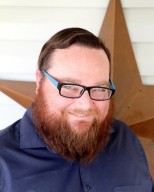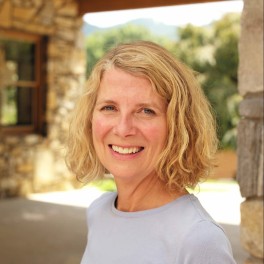
“And they said my child would never…” is available online
BREWSTER (Cape Cod, Massachusetts) – Students from Latham School and their families featured in a newly published video, “And they said my child would never”, would like the special needs community near and far to hear their stories of hope. The three-minute video, produced by Latham Centers in collaboration with Shoreline Media Productions of Hyannis, Mass. highlights the experiences of families of children diagnosed with Prader-Willi syndrome (PWS). PWS is a complex genetic disorder affecting appetite, growth, metabolism, cognitive function, and behavior. The hallmark characteristics include insatiable hunger and a slowed metabolism that can lead to excessive eating and life-threatening obesity.
“When you first receive the diagnosis of Prader-Willi syndrome, you may be told that there are things your child will never do,” begins Patrice Carroll, LCSW, Director of PWS Services at Latham. Ms. Carroll works with children and adults with PWS, and she is internationally known for her Prader-Willi expertise. Ms. Carroll tells parents, “Don’t accept the limits that other people place on your child.”
Latham students featured on camera include Annika, whose mother said she never thought her daughter would be in such a place of calm and confidence; Christopher, whose mother is amazed by his weight loss and said he is happy, thriving, and enjoying life; and Patrick, who works at a local library and proudly talks of his progress toward his MCAS portfolio and high school diploma. Family members reflect on the remarkable accomplishments their children have made at Latham, a therapeutic residential school in the “Cape Cod Sea Captains’ Town” of Brewster. One mother shares, “When we first got the Prader-Willi diagnosis, it was pretty scary. The person who told us about the disease gave us some very horrifying news about how he was going to be very cognitively impaired and wasn’t going to be able to function very well.” The video features moments in the classroom, on campus, and in the community in which her son is happy, achieving, and enjoying time with his peers.
Ms. Carroll’s message to PWS families is uplifting: “Your child will succeed. Your child with thrive, and love, and they will make you happy and proud. They will defy all expectations, and they will show you that perseverance and patience always pays off.”
“And they said my child would never” is available on the main page of Latham’s website, LathamCenters.org.
***

 According to the National Institute of Mental Health, about 14 percent of youth between the ages of 13 and 18 will have a mood disorder, which manifests as feelings of sadness, hopelessness, or irritability. Mood disorders typically interfere with how a person thinks and manages every day activities like sleeping and eating. Female teens are more than twice as likely to be diagnosed with a mood disorder than their male peers. They’re also at a higher risk for emotional dysregulation, which is difficulty controlling emotional responses and behaviors, and for some, it can lead to self-destructive actions, self-harm, or suicidal thoughts. Emotional dysregulation can easily be misdiagnosed as major depressive disorder or anxiety disorders, and it can also accompany many other diagnoses.
According to the National Institute of Mental Health, about 14 percent of youth between the ages of 13 and 18 will have a mood disorder, which manifests as feelings of sadness, hopelessness, or irritability. Mood disorders typically interfere with how a person thinks and manages every day activities like sleeping and eating. Female teens are more than twice as likely to be diagnosed with a mood disorder than their male peers. They’re also at a higher risk for emotional dysregulation, which is difficulty controlling emotional responses and behaviors, and for some, it can lead to self-destructive actions, self-harm, or suicidal thoughts. Emotional dysregulation can easily be misdiagnosed as major depressive disorder or anxiety disorders, and it can also accompany many other diagnoses. At Journey Home East, a step-down, transitional living program for young adults ages 16-21, residents have the opportunity to develop and work on their education goals while in the program with the support of an in-house Education Liaison, Tatiana Martinez.
At Journey Home East, a step-down, transitional living program for young adults ages 16-21, residents have the opportunity to develop and work on their education goals while in the program with the support of an in-house Education Liaison, Tatiana Martinez.


